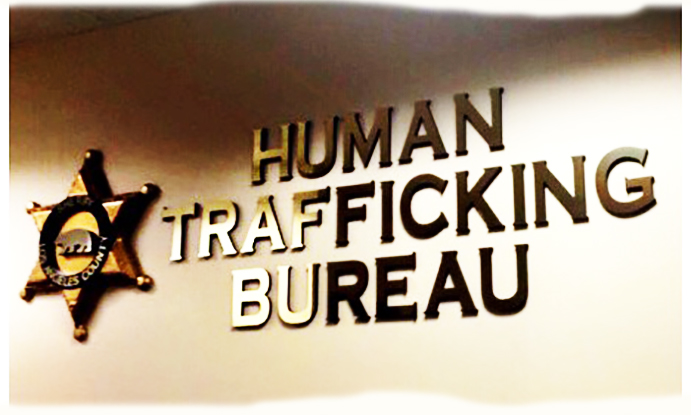As law enforcement and other agencies are switching from approaches that treat trafficked kids like criminals, toward methods that recognize the children are victims, momentum has been building in Sacramento, and California lawmakers are pushing a number of bills aimed at curbing commercial sexual exploitation of minors.
SB 1322, a bill introduced by Senator Holly Mitchell (D-Los Angeles) to shield trafficked children from prosecution and criminalization is heading to the Assembly for a vote this week.
Two different bills aim to help exploited minors clear their records.
One of the bills, Sen. Marty Block’s SB 823, would assist young victims of trafficking in clearing non-violent offenses and sealing their juvenile records.
A number of the bills have bipartisan support and face little or no opposition. Others proposed legislative solutions have proven more polemic.
Some law enforcement and prosecutors argue that decriminalizing trafficked kids will make it more difficult to build links between the young victims and their traffickers in court, and also take away law enforcement agencies’ ability to hold trafficked minors in secure facilities and connect them with service groups.
Two other bills introduced by former Assembly Speaker Toni Atkins have garnered a lot of attention. AB 1730, would set up temporary housing, trauma-informed mental health care, and mentoring services for children (many of whom are involved in either or both the child welfare and juvenile justice systems) rescued from the sex trafficking industry. A companion bill, AB 1731, would form a task force to gather and report data on sex trafficking victims, the people who run trafficking operations, and those who buy sex. The group would use this information to train law enforcement to recognize and stop trafficking enterprises.
There are several other bills that take different approaches—like imposing harsher penalties for johns, and ramping up protections for kids testifying against their traffickers in court.
But opponents worry there may be unfavorable consequences attached to some of the bills. For example, opponents of a bill that would allow police to impound vehicles used by johns soliciting sex say the proposed legislation might spawn rights-violating seizures and other constitutional breaches.
The LA Times’ Jazmine Ulloa has more on the issue. Here’s a clip:
More than 30 bills this legislative session alone have attempted to combat a multibillion-dollar industry that now operates as much online, if not more, as it does on the streets. But much of the legislation, still pending as lawmakers return to Sacramento for their final month of deliberations, varies in its approach to the problem. Critics say the competing proposals present a difficult path forward.
“There is no easy solution to modern-day slavery — if there was, we would have already been doing it,” said Stephanie Richard, policy and legal services director at the Coalition to Abolish Slavery and Trafficking.
[SNIP]
State-run regional human trafficking task forces arrested nearly 1,800 people and identified 1,277 victims from mid-2010 to mid-2012, 72% of whom were American and 56% of whom had been trafficked for sex, according to the state attorney general’s office. FBI statistics consider three California cities among the areas with the highest rate of child sex trafficking: Los Angeles, San Francisco and San Diego.
Victims tend to be young. Boys are typically ages 11 to 13 when they are entered into the trade; girls are usually between 12 and 14.
With such staggering numbers, local coalitions began focusing on diverting young victims away from the criminal justice system and dismantling the perception that children and teens willfully and knowingly enter prostitution.
The most significant changes came in 2012 with the passage of Proposition 35, which increased sentences for all trafficking crimes and clearly articulated that trafficked people are victims, not criminals.
Now agencies are continuing the move from an approach that criminalizes prostitution to one that protects trafficked victims from prosecution and provides them with social services. But as lawmakers join the cause, how the Legislature can help make the shift is up for debate.

